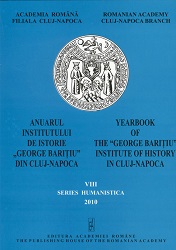LE CONCEPT HÉGÉLIEN DE VENGEANCE
The Hegel Concept of Revenge
Author(s): Virgil CiomoşSubject(s): Philosophy
Published by: Editura Academiei Române
Keywords: law; inter-diction; punishment; revenge.
Summary/Abstract: Starting with the Enlightenment, the philosophy of the law was preoccupied by the pedagogical, human sense involved in the process of giving a punishment. The incriminated deed – qui facti – had to be “deducted” from a quid juris – that couldn’t be anymore the effect of a simple “pulsation”, be it “juste”. In this complex context, which states the philosophical issue of the penalty (including death penalty), Hegel tries to rise above the inter-subjective framework of victims’ mere pedagogy (redefined as a majority), proposing, in final analysis, the Spirit of the law, an anonymous Spirit and thus, trans-subjective. The author resumes the analysis of the Phenomenology of Spirit dedicated to its force and repression, as well as to the two senses – primary and secondary senses – of the law – redefined as a return of the repressed force -, in order to question Hegel’s vision of the inter-diction. He insists upon the concept of Verkehrung, adequate for the law, which main effect is the overthrow of the primary sense of the punishment.
Journal: Anuarul Institutului de Istorie »George Baritiu« din Cluj-Napoca - Seria HUMANISTICA
- Issue Year: VIII/2010
- Issue No: 8
- Page Range: 165-184
- Page Count: 20
- Language: French

